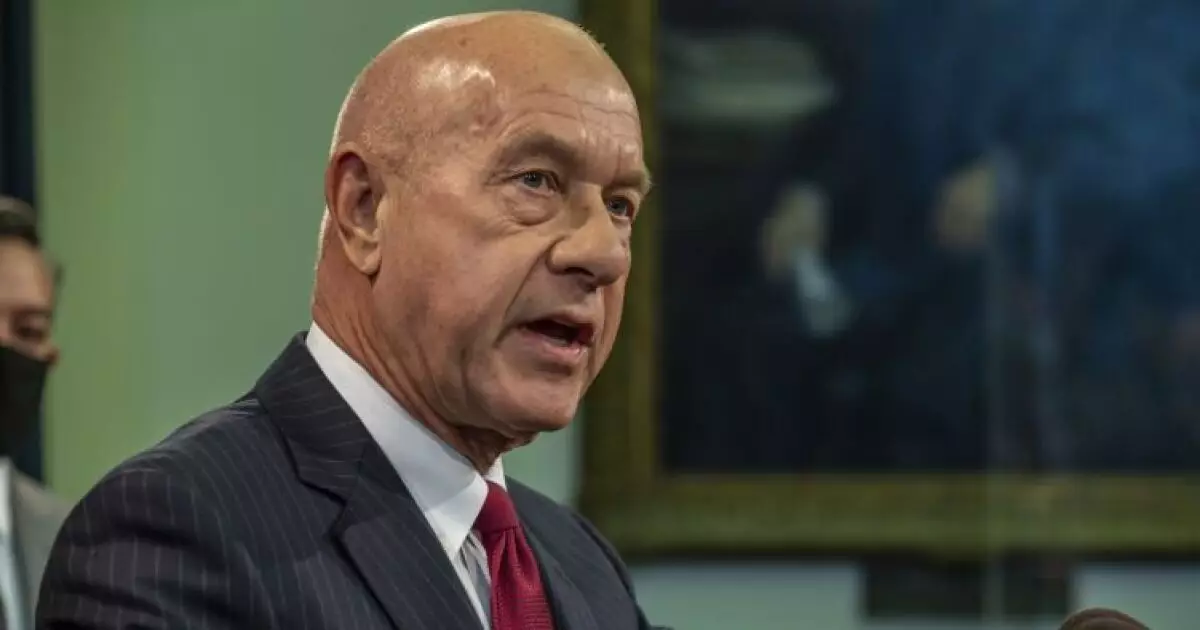Controversy Surrounds Houston Investor Conference Amid Mayor’s Allegations

The recent investor conference held in Houston, hosted by Controller Chris Hollins, has been mired in controversy following allegations raised by Mayor John Whitmire regarding improper corporate sponsorship practices. This tension reflects deeper political divides and concerns about transparency in government fundraising initiatives, highlighting the complexities of funding municipal events while maintaining ethical standards.
Mayor Whitmire expressed significant concerns about the sponsorship model adopted for the investor conference, which reportedly involved substantial contributions from various corporate entities, including investment banks and a law firm, with sponsorships ranging from $10,000 to $50,000. The Mayor’s request for a city investigation into the event stemmed from his belief that these corporate ties could denote a “pay-to-play” scheme, indicating potential conflicts of interest in municipal governance. The terminology associated with “pay-to-play” often raises red flags about the ethics of inviting corporate financing into local politics, suggesting an undertaking of greater scrutiny.
In contrast, Controller Hollins has firmly defended the legitimacy of the conference’s funding structure. He emphasized that while both his event and the Mayor’s State of the City address employed similar fundraising tactics, the differentiating factor lies in the allocation of funds. Hollins stated that proceeds from the investor conference were directed towards the Houston Forward Fund—a nonprofit organization verses the direct control exercised by the Mayor over proceeds from his address. This distinction is crucial, as it raises questions about the impartiality and distribution of municipal resources.
Despite the fallout, Hollins noted that the investor conference saw significant participation, with over 110 attendees engaged in discussions centered around Houston’s investment potential. This suggests that, irrespective of the Mayor’s absence and the controversy surrounding it, there remains a strong interest in Houston as a lucrative opportunity for investment. The conference featured a series of panels and discussions that emphasized economic prospects in the area, reinforcing the idea that collaborative efforts can continue despite political strife.
The ongoing power struggle between Hollins and Whitmire seems to exacerbate the situation, particularly in light of Houston’s challenges with fiscal management. Both officials, who assumed their roles earlier this year via runoff elections, have experienced escalating tensions over issues such as budget deficits and ratings downgrades from major financial agencies. These disputes underscore the need for transparency and the reevaluation of existing processes surrounding municipal funding to ensure taxpayer interests and ethical standards remain intact.
The fallout from this investor conference raises significant questions about the intersection of corporate funding and municipal governance in Houston. Moving forward, it may be crucial for both the Mayor’s office and the Controller’s office to reassess their collaborative strategies and communication to better serve the public interest. Establishing clear guidelines regarding corporate sponsorships can pave the way for more transparent and accountable governance, which is essential in restoring public trust in local political institutions. The Houston investor conference serves as a pivotal case study in navigating these challenges and ensuring ethical practices govern future political and financial engagements.





